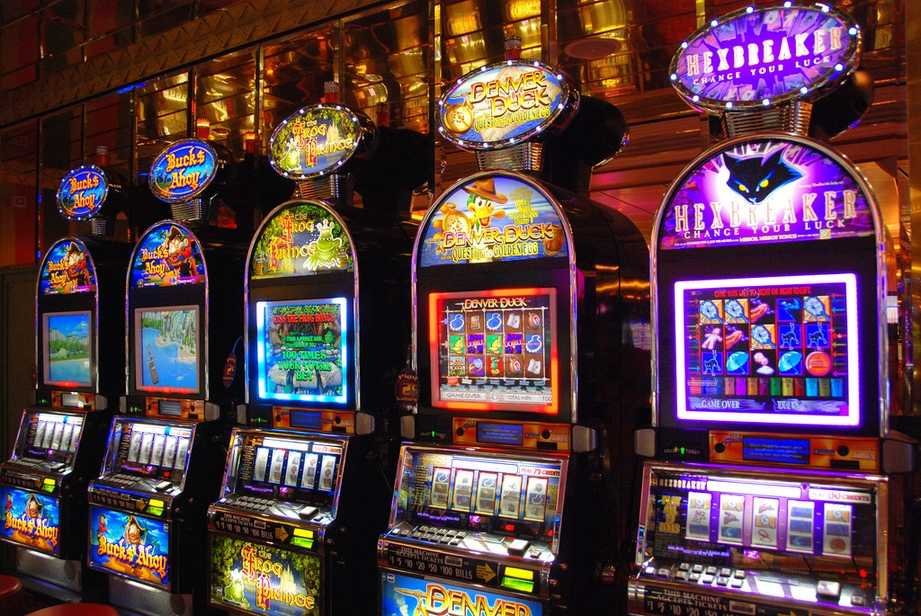
Unveiling The World Of Games Of Skill Machines
In the ever-evolving landscape of entertainment and games, games of skill machines have emerged as a fascinating and often contentious frontier. Unlike their purely chance-driven cousins found in the traditional realms of arcades, these machines offer a compelling twist: the outcome of the games they host hinges not solely on luck but significantly on the player’s skill and dexterity. This article delves into the intricate world of games of skill machines, dissecting their essence, legal standing, and the subtle dance of skill versus chance that defines them.
The Essence of Games of Skill Machines
At their core, games of skill machines are electronic devices that offer games requiring players to exercise cognitive or physical skill to influence the outcome. From video game-like experiences to puzzles and trivia, the genres are as diverse as they are engaging. Players might find themselves strategizing the best path to victory in a strategy-based game or recalling obscure facts in a high-stakes round of trivia.
The Skill Versus Chance Conundrum
The primary distinction between games of skill machines and traditional arcade devices lies in the determinants of their outcomes. While the latter relies on randomness and luck, skill machines rest on the premise that a player’s actions directly impact the result. This distinction is crucial, not just for players seeking control over their game fortunes but also from a legal perspective. In many jurisdictions, the classification of a game as one of skill rather than chance can navigate it clear of prohibitions.
The Legal Landscape
The legal standing of games of skill machines is a patchwork quilt, varying significantly from one jurisdiction to another. Some states in the U.S., for example, allow these machines under specific regulations, recognizing the element of skill as a defining characteristic that separates them from arcade devices. Conversely, other areas treat them with the same stringent oversight applied to arcade games, requiring licenses and imposing restrictions. This legal ambiguity often results in debates and challenges, as operators, lawmakers, and regulatory bodies grapple with the nuances of defining skill and chance.
The Player’s Perspective: What Draws Individuals to Games of Skill Machines?
Players are often drawn to games of skill machines for the promise of exerting some level of control over their game experience. The allure lies in the challenge—the idea that one’s abilities can directly influence the game’s outcome is a compelling draw for many. Moreover, these games can provide a sense of progression and achievement, rewarding players not just financially but with a sense of personal accomplishment.
The Economic and Social Impact
Games of skill machines occupy a unique niche in the game economy. In regions where they are permitted, they can contribute significantly to local businesses, providing an additional revenue stream for venues such as bars, arcades, and entertainment centers. However, their presence is not without controversy. Critics argue that despite the element of skill, the potential for financial loss and the addictive nature of game can still pose risks to vulnerable populations.
The Future of Games of Skill Machines: Innovations and Evolution
The future of games of skill machines is as dynamic as the technology that powers them. We are witnessing an era of innovation, where augmented reality (AR), virtual reality (VR), and advanced artificial intelligence (AI) are beginning to make their way into skill-based games. These technological advancements promise to offer even more immersive and challenging experiences, blurring the lines between video game and skill-based games.
Navigating the Challenges: Regulation and Responsible Playing
As games of skill machines continue to proliferate, the challenges of regulation and the promotion of responsible playing come to the forefront. Establishing clear criteria to distinguish between games of skill and chance is paramount for regulatory bodies. Equally important is the development of frameworks to ensure that players are protected from potential harms associated with games, including financial losses and addiction.
The Role of Skill in a Traditionally Chance-Dominated Industry
Games of skill machines represent a significant departure from the tradition of chance-dominated games. They introduce an element of meritocracy to an industry historically governed by luck. This shift challenges both players and operators to rethink the nature of games, blending the thrill of playing with the satisfaction derived from skillful play.
The Community and Cultural Phenomenon
Beyond their economic and legal implications, games of skill machines have fostered a unique community and culture. Players often share tips, celebrate victories, and even compete in tournaments, creating a subculture reminiscent of the video games world. This community aspect adds a rich layer of social interaction to the playing experience, distinguishing skill machines from their solitary, chance-based counterparts.
Conclusion: A New Frontier in Games
Games of skill machines stand at the crossroads of games, technology, and law, offering a new frontier for players, operators, and regulators alike. They challenge the traditional paradigms of games, offering a blend of skill, strategy, and occasionally, luck. As technology advances and legal landscapes evolve, games of skill machines will likely continue to grow in popularity, complexity, and socio-economic impact.
In navigating this burgeoning field, stakeholders must consider the ethical and legal nuances, ensuring that the growth of skill-based games contributes positively to the gamie ecosystem. Whether as a form of entertainment, a test of skill, or a subject of legal scrutiny, games of skill machines are undeniably reshaping the fabric of the game industry, promising a future where skill and chance engage in a continual, dynamic dance.




